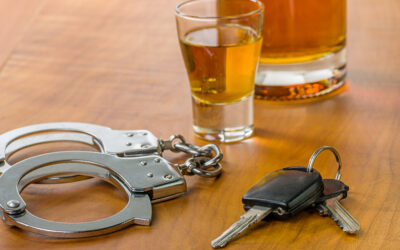The consequences in a DUI case are more severe when someone suffers injury because of someone driving while intoxicated. CA Vehicle Code 23153 – Driving Under Influence of Alcohol or Drugs Causing Injury is a wobbler offense, which means it can be treated as a misdemeanor or felony. It also carries much more substantial penalties than a regular DUI.
The law is the same whether you are under the influence of drugs or alcohol (or both). If you are facing charges in a case involving a DUI that injured someone, you can protect your constitutional rights while fighting your case. Our Los Angeles DUI lawyer can review your case and explain your legal options. To get started, call our law office today for a legal consultation.
Overview of CA Vehicle Code 23153 – Driving Under the Influence of Alcohol or Drugs Causing Injury
California Vehicle Code § 23153 addresses the serious offense of driving under the influence of alcohol and/or drugs and causing bodily injury to others as a result. Driving while impaired from alcohol or drug use is a significant public safety issue, and the consequences are heightened when a person’s actions result in an accident that injures other individuals.
Defining ‘Under the Influence’
Under California law, a person is “under the influence” if alcohol or drug use impairs their mental or physical abilities. It also means their impairment is apparent to such a degree that they can no longer drive a vehicle with the caution of a sober person using ordinary care under similar circumstances. Even driving under the influence of prescription drugs (DUID) could bring criminal charges.
This definition is not strictly based on any specific blood alcohol content (BAC) limits. However, driving with a BAC of 0.08% or higher, the legal limit for non-commercial adult drivers age 21 and above, is a key factor in these cases.
If you are a commercial driver in California, the legal limit is 0.04%. If you are a driver under the legal drinking age, the legal limit is 0.01%, as explained on California’s Department of Motor Vehicles (DMV) website.
Defining ‘Causing Bodily Injury’
“Causing bodily injury” in the context of California’s DUI laws refers to the driver’s actions under the influence directly leading to physical harm to another person. The person doesn’t need to suffer a severe injury for this standard to apply. Relatively minor physical injuries fall under this definition, too.
The key aspect in these cases is legally showing how impairment from drugs or alcohol caused the injury. This means proving the injuries were a direct consequence of the crash or incident caused by impaired driving.
Our drunk driving attorneys can provide essential guidance and representation to help you navigate the legal process and seek the best possible outcome for your case. To get started, call us or contact us online today for an initial consultation.
Charges related to VC 23153 include:
- Vehicular manslaughter while intoxicated with negligence (California Penal Code § 191.5(b)).
- Felony hit and run involving injury or death (California Vehicle Code § 20001(a)).
- Child endangerment (California Penal Code § 273(a)). Drivers who commit a DUI with a minor in the vehicle can be charged with PC 273(a). A minor is anyone who is under age 18.
Penalties for DUI of Alcohol or Drugs Causing Injury in California
VC 23153 can be a misdemeanor or a felony, depending on the circumstances and severity of the incident.
- Misdemeanor: If injuries are minor, a misdemeanor charge applies. Penalties include up to one year in county jail, a fine of up to $1,000, and a driver’s license suspension. You may also be required to attend an alcohol or drug program.
- Felony: If the incident caused serious injuries, a felony charge can be brought. Penalties include up to four years in state prison, a fine of up to $5,000, and a revocation of your driver’s license. You may also have to attend a DUI school approved by the court. The severity of the victim’s injuries will play a significant role in a prison sentence. Felony DUIs carry other penalties as well.
Penalties May Also Include Victim Restitution
If a driver is convicted of driving under the influence and causing injury, the court may order the offender to pay the victim restitution. This payment is intended to compensate the injured party for any medical expenses, lost income, and other damages directly resulting from the accident the impaired driver caused.
How a Case’s Facts and Circumstances Can Affect Penalties
No two criminal cases are the same, but each case’s unique factors can affect how defendants will fare in the judicial system. The following can also affect a DUI case’s outcome:
- The defendant’s driving record and prior convictions: The defendant’s prior driving record can significantly influence the charges in a case. If the defendant has previous DUI convictions, particularly a prior California felony DUI or convictions that also involved injuries, the current offense is likely to be charged as a felony offense.
- Prosecutorial discretion: Factors such as the level of negligence, recklessness, or the presence of other aggravating factors (like an excessively high blood alcohol level or the presence of children in the vehicle) might prompt the prosecution to file charges as a felony even if injuries are on the lower end of severity.
It is important to note that in California, if a person has been convicted of certain prior felonies related to DUI (e.g., felony DUI or vehicular manslaughter while intoxicated), any subsequent DUI causing injury is automatically charged as a felony, regardless of the latest offense’s circumstances. This underscores the state’s stringent measures to deter repeat offenses and enhance penalties for habitual violators.
How Can the Prosecution Prove a DUI Causing Injury Case?
While driving under the influence of alcohol or drugs causing injury is a serious charge, it can be hard to prove. The burden of proof is on the prosecutor in your case. They can proceed one of two ways:
They must prove:
- You had at least .08% blood alcohol concentration level after alcohol or drug use.
- You broke another traffic law.
- Breaking that law led to the injury.
Or they must prove:
- You were “under the influence” of either alcohol or a drug.
- You broke another traffic law.
- Breaking that law led to the injury.
Nuances Can Affect the Outcome of DUI Causing Injury Cases
The differences in the approaches listed above are subtle but important. The prosecutor doesn’t have to prove you were over the .08% limit if they can prove you were “under the influence” (impaired). Their evidence of this may involve reports that you swerved, slurred your speech, etc.
However, if they can prove you were over .08%, they don’t need to prove you were impaired. Simply being over the limit is enough. The prosecutor’s possible weak spot is that they must also prove you broke another road rule. If they can’t, getting a conviction will likely be difficult. Or, if breaking the other rule isn’t what caused the accident, again, you might not face conviction.
Here’s an example:
You were driving home after having three drinks with friends. In addition to driving under the influence, you were spotted by a police officer rolling through a stop sign. A block later, before the officer could pull you over, someone ran across the street without warning, and you hit them, causing an injury. You were under the influence, and you broke a stop sign law, but that’s not what caused the injury.
In this example, you are not guilty of DUI causing an injury. Many real-life cases are much less clear than this, but our DUI lawyers can help you fight the charge.
Proving a DUI Causing Injury Case Requires Evidence
Prosecutors can look for any of the following when seeking to prove their case against a defendant:
- Physical evidence from the accident scene, including car parts and debris
- Witness testimony from people who saw the incident
- Surveillance and photographic evidence capturing the accident
- Expert testimony, such as statements from accident reconstruction experts, can help explain how the incident occurred.
Common Legal Defenses
You, or your criminal defense lawyer, can challenge a DUI causing injury case. Common defense strategies include:
- You were not under the influence of drugs or alcohol: You can present other explanations for any reported observations of impairment, such as medical conditions or physical fatigue. Additionally, evidence such as witness testimony or video footage can be used to demonstrate normal behavior and coordination during the incident.
- No one was injured during the encounter (if there was an encounter): You can use a police report, medical records, and expert testimony to show that no injuries occurred or that any injuries present were not related to the incident.
- Mistaken identity: You may be able to argue you were not driving the vehicle when the incident occurred. This could involve presenting evidence or testimony to show that someone else was driving or that the defendant was not in control of the vehicle when the injury occurred.
- Challenging the BAC test result’s accuracy: You can argue that the DUI blood test, DUI breath test, or urine test used to determine intoxication was inaccurate. This might involve questioning the testing device, the qualifications of the person who gave you the test, or the proper handling of the samples.
- Questioning field sobriety test (FST) validity: Field sobriety tests can be subjective and influenced by various factors unrelated to alcohol or drug use. These include physical disabilities, medical conditions, nervousness, or even road conditions at the time of the test. Criminal defense attorneys might argue these tests do not reliably indicate impairment.
How Our DUI Lawyer Can Represent You and Fight Your Case
Having a lawyer represent you when facing serious charges is critical to protecting your rights while aiming for the best possible outcome. While we understand that this can be a challenging and stressful time, you don’t have to face your case alone. We can help.
We will handle the entire case for you, including:
- Understanding the law: Our lawyers handling DUI cases have a deep understanding of California’s drunk driving laws and can navigate the complex legal system with decades of experience.
- Examining case evidence: Our attorneys will thoroughly examine the evidence against you, from the police report to the results of any alcohol or drug tests you took. We can identify and challenge any mistakes in how the tests were conducted or how the evidence was handled, potentially weakening the case against you. We also will collect evidence that supports your case.
- Creating a defense strategy unique to your case: We can explore other defenses, such as arguing that you weren’t actually under the influence or that someone or something else caused bodily harm. We can gather witnesses who can support your side of the story, offering alternative explanations for the incident.
- Negotiating with prosecutors: We can negotiate with prosecutors on your behalf and arrange a deal where you face lighter penalties than you would if you went to trial and lost, such as less time in jail, lower fines, or alternative penalties like community service. We can also advise if taking a DUI plea bargain can help you.
- Guiding you through the criminal justice process: We will be there with you during the entire process, from understanding your charges and exploring your options to representing you in court. We will handle all the legal details and keep you updated on your case’s status. This can help reduce stress and help you focus on your life and responsibilities.
Call Us Today to Start on a DUI Causing Injury Case
A charge under CA Vehicle Code 23153 – Driving Under the Influence of Alcohol or Drugs Causing Injury is serious, and a conviction on your record will bring consequences. The sooner you call our law firm, the sooner you can learn about your legal options.
The prosecution is likely building its case against you now, so you owe it to yourself to learn how we can work to help you avoid the harshest outcome. We are ready to get started. Call or contact us online today for a free consultation.







